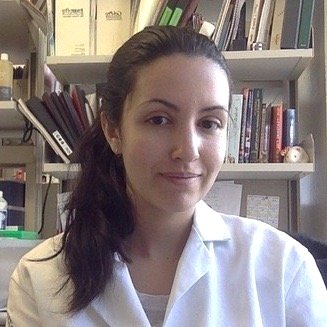Funding Summary
Dr. Azevedo is interested in a particular set of neurons (the lateral septum, LS, neurons) in the brain that express the PWS-region gene, MAGEL2, since these neurons may be important in controlling feeding behavior. Here, she will investigate whether LS neurons behave differently in PWS mice compared to ‘wild-type mice’, potentially identifying a new neural circuit that can be targeted for therapy.
Lay Abstract
Prader–Willi syndrome (PWS) is a challenging syndrome characterized by uncontrollable overeating, weight gain, social and learning disabilities. PWS results from the deletion in chromosome 15 affecting several genes including MAGE family member L2(MAGEL2). MAGEL2 is abundantly present in a brain region important for the control of eating, learning and emotions termed the lateral septum (LS). We showed that nerve cells in the LS are connected to the hypothalamus, a brain region key for the regulation of eating. Our group has showed that manipulating nerve cells that contain a specific neuropeptide called neurotensin in the LS lead to uncontrollably overeating. On the other hand, inhibiting these cells can prevent overeating and body weight gain. Our studies suggest that LS is a key brain region that may control uncontrollable eating and obesity in PWS patients. In animals missing the MAGEL2 gene, studies showed alterations in the LS, specifically in the levels of neuropeptides important for emotional and eating control (i.e. oxytocin and vasopressin). The LS is a brain region that contains an enormous variety of cells controlling emotions and eating. However, the identity of these cells and the molecular mechanisms by which they become altered and lead to the uncontrollable overeating and weight gain observed in PWS are unknown. Here we propose to use innovative state-of-the-art tools to identify these specific nerve cells and as well as the exact genes that drive the alterations in eating behavior and weight gain observed in individuals with PWS. We aim to find new and better ways to correct these alterations to treat and increase the quality of life of patients suffering from PWS. Considering that drug development can take decades, we will also focus in finding genes and pathways that can be corrected with drugs that are already FDA approved and commercially available, but not yet used to specifically treat PWS due to lack of research. To obtain success in this proposal, we will use mice missing the MAGEL2 gene. This is a widely-used mouse line that mimics several phenotypes observed in PWS patients. Using this powerful tool, we will obtain a precise list of genes, including drug target receptors and pathways, that mark dysfunctional LS populations in MAGEL2-null mice compared to healthy mice. Our proposal will shed light on the brain mechanisms by which MAGEL2, a gene which mutation show many of the same features of PWS patients, alter a key eating node in the brain and contributes to the phenotypes observed
in PWS. Our goal is to find new druggable targets to rescue the feeding and behavioral alterations observed in PWS patients. The goals of this proposal are perfectly aligned with the mission of the
Foundation for Prader-Willi Research which is to develop new therapies that will improve the health and well-being of patients with PWS.
Research Outcomes: Public Summary
Our study completes the grant aims and delivers a cell type- and sex-specific transcriptomic map of the lateral septum in MAGEL2-null mice, a mouse model of Prader-Willi syndrome (PWS). By integrating deep bulk RNA sequencing with single-nuclei RNA seq, we identified a cholinergic deficit that aligns with known physiological and behavioral abnormalities in PWS, together with an imbalance between hunger and satiety pathways and a measurable pro-inflammatory tone. Across sexes, genes governing acetylcholine transmission are strongly reduced, while genes involved in satiety signals such as leptin receptor decline and genes involved in hunger-promoting pathways including GHSR and PENK rise. We also found that some alterations show sex-dependent patterns and using single-cell RNA seq we localize these to molecularly defined inhibitory neuronal and septal cholinergic populations that are known to influence feeding, cognition, and social behavior. Together, the findings support a circuit-level model in which reduced forebrain acetylcholine tone and weakened satiety inputs, against a background of heightened appetite and inflammation, bias behavior toward hyperphagia and related PWS traits.
Funded Year:
2024
Awarded to:
Estefania Azevedo, Ph.D.
Amount:
$86,400
Institution:
Medical University of South Carolina
Researcher:

Estefania Azevedo, PhD




